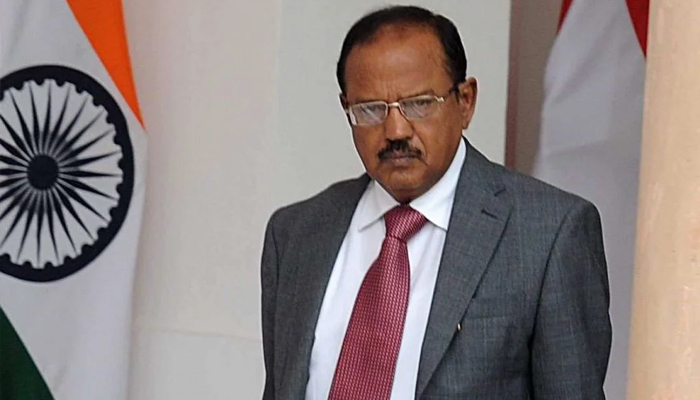Amid the diplomatic standoff between India and Canada over the alleged targeting of pro-Khalistan separatist figures.
National Security Adviser (NSA) Ajit Doval held a secret meeting with his Canadian counterpart in Singapore last week, according to a report in The Washington Post. In the meeting, the Canadian officials outlined alleged evidence showing that India had enlisted networks of the Lawrence Bishnoi gang to carry out the killing of Khalistani terrorist Hardeep Singh Nijjar and attacks on Sikh separatists.
The report by the US-based newspaper is based on remarks by anonymous Canadian officials. The Ministry for External Affairs has not yet responded to claims made in The Washington Post report.
The report, citing Canadian officials, claimed Doval initially “pretended not to have any idea” who Lawrence Bishnoi was. Later, the NSA acknowledged that Bishnoi was “capable of orchestrating violence from wherever he is incarcerated” and “was known to be up to no good from his jail cell”, the report claimed.
The meeting, which lasted five hours, was sought by Canada to persuade the Indian government to end an “escalating campaign of violence” in the country. Apart from Canadian security adviser Nathalie Drounin, the meeting was attended by Deputy Foreign Minister David Morrison and a senior member of the Royal Canadian Mounted Police.
The Canadian officials also told Doval that details on alleged Indian involvement in attacks on Sikh separatists were likely to become public as the trial of four suspects in Nijjar’s killing was scheduled next month. Nijjar was gunned down in Surrey, British Columbia, in June last year.
The report cited Doval as saying that India would “deny any link to the Nijjar murder and any link to any other violence in Canada, no matter what the evidence was”.
The report also claimed that the six Indian diplomats, including High Commissioner Sanjay Verma, who were asked to leave Canada were directly involved in gathering intelligence on Sikh separatists who were then killed, attacked or threatened by India’s proxies.
India strongly denied the allegations, calling them “preposterous imputations” and ascribed them to the “political agenda” of Canadian Prime Minister Justin Trudeau. In a tit-for-tat move, India has also expelled six Canadian diplomats, including Canada’s top diplomat in New Delhi.

